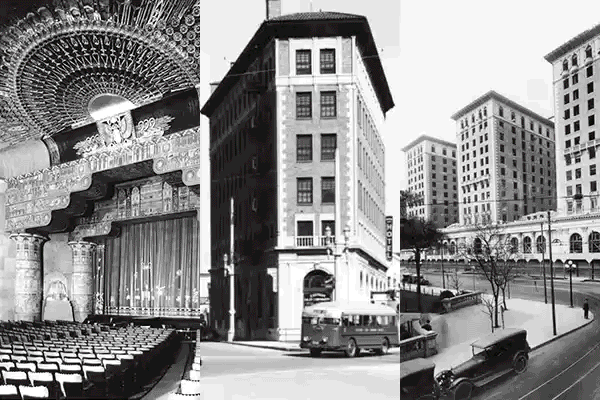More Summer Treats in the Before-the-Code Series
- Share via
The UCLA Film Archives’ “Hollywood Before the Code” series is proving to be a summer treat, a chance to see some rare pictures and at the same time become aware of just how much Hollywood could get away with--mainly via double entendres--before the big clampdown of 1934 that was to restrain film makers for the next three decades. Complementing the UCLA series has been the County Museum of Art’s “Romantic Comedies,” a series of films of the ‘40s as well as the ‘30s.
The pre-code offerings continue with “Girls About Town” (1931) (screening Saturday at 6 p.m. in Melnitz Theater, UCLA). Director George Cukor’s fifth film, it is a real sparkler, a timeless gem that possesses the wit and verve for which he was famous. His friend, noted writer Zoe Akins, produced ideal material in this swift, amusing yet poignant tale about a pair of Manhattan gold diggers who are played to slinky perfection by Kay Francis and Lilyan Tashman. Francis is the classy, serious brunet, Tashman the brassy, good-hearted blonde, and they live in Art Deco splendor as party girls. Technically, they’re not prostitutes but support themselves as paid escorts to rich men. Their status is treated with exquisite tact, leaving us to wonder whether they just might be tempted by the right guy. But most of their clients are sugar daddies, visiting firemen who are easily bilked and dismissed at their front door.
Eugene Pallette’s paunchy, comical Lansing copper king fits the stereotype but his partner is another matter, a young man (Joel McCrea) whose good looks and mixture of cynicism and naivete have an impact upon Francis for which she is not prepared.
“Girls About Town” anticipates “The Women” in Cukor’s deft, amused but ever-compassionate view of a large and distinctive array of women and captures the undertow of sadness, impermanence and weariness of the heroines’ unending round of partying. In their smashing Travis Banton gowns, Francis and Tashman are eternally glamorous, and their finely shaded portrayals are surely among their very best.
Surprisingly, Mervyn LeRoy’s trend-setting “Five Star Final” (1931), which screens Sunday at 8, is as stilted and dated as his “Two Seconds,” screened earlier in the series, is fresh and dynamic. Its indictment of the sensationalist press remains powerful and timely, and the film, adapted from the Louis Weitzenkorn play, is just fine as long as it stays in the offices of a newspaper said to be inspired by Bernarr MacFadden’s infamous New York Graphic. Edward G. Robinson couldn’t be better as the smart editor who hates himself for going along with his publisher’s lurid policies, nor could Aline MacMahon as his acerbic, silently adoring secretary who serves as his conscience. But we spend too much time with a family cruelly victimized by the paper’s needless dredging up of the mother’s past. The family is so noble in its suffering it becomes insufferable. Boris Karloff is on hand as a wonderfully awful creep of a reporter. For full schedule: (213) 206-FILM, 206-8013.
Among the week’s “Romantic Comedies” offerings at LACMA is “Bachelor Mother,” which screens Saturday in Bing Theater at 8. Adapted by Norman Krasna from a story by Felix Jackson and directed by Garson Kanin, this 1939 charmer (reworked for Debbie Reynolds and Eddie Fisher as “Bundle of Joy” in 1956) stars Ginger Rogers and David Niven. Rogers is the struggling department store clerk (albeit smartly dressed by Irene) who inadvertently is stuck with an unwanted baby; Niven is the department store owner’s debonair son who believes Rogers is an unwed mother. Never mind that we know where this film is headed, for the getting there is delightfully complicated by a constantly inspired and funny series of screwball antics. In comparison to the hard-edged “Girls About Town,” “Bachelor Mother” is Hollywood make-believe at its glossiest. Yet it is a constant pleasure to watch the easy, assured star performances of the well-teamed Rogers and Niven--not to mention the comic portrayal of Frank Albertson as a thick-headed stockroom clerk who dreams of becoming a floorwalker and the urbane presence of Charles Coburn as Niven’s father. For full schedule: (213) 867-6010.
More to Read
Only good movies
Get the Indie Focus newsletter, Mark Olsen's weekly guide to the world of cinema.
You may occasionally receive promotional content from the Los Angeles Times.









